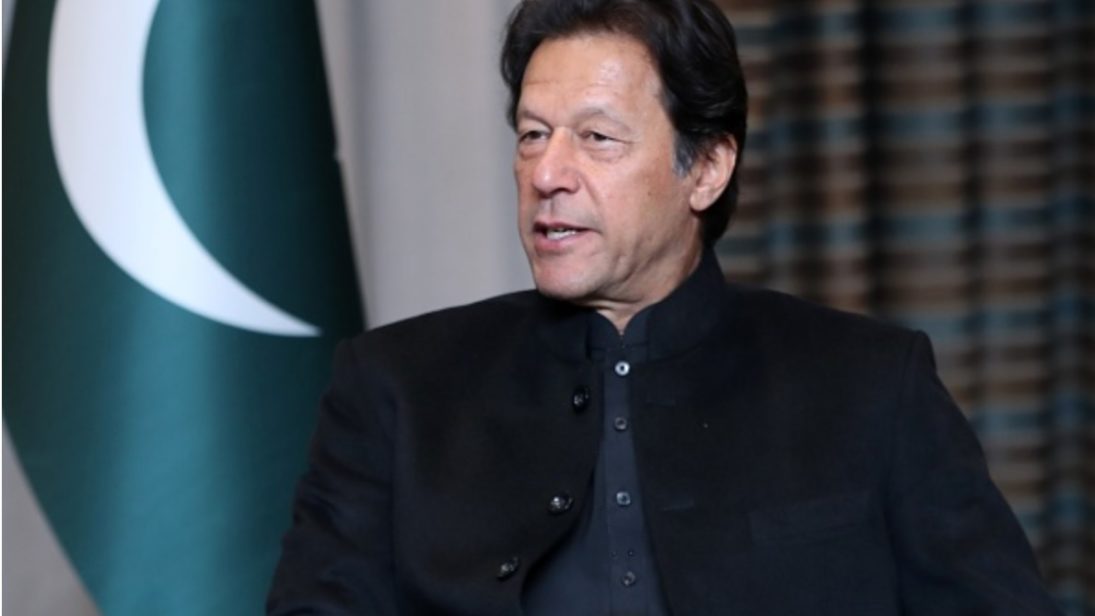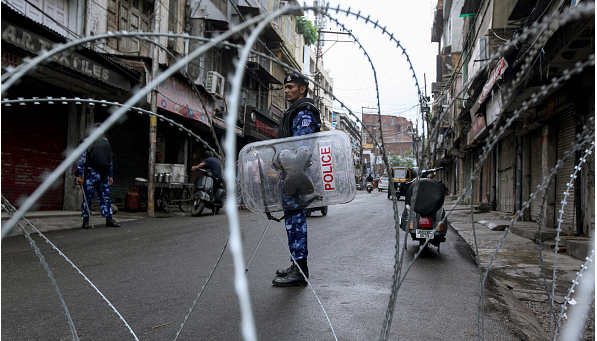
The Bharatiya Janata Party(BJP)-led Indian government’s recent decision to revoke the special status of Jammu & Kashmir (J&K) and the subsequent bifurcation of the disputed region into two separate territories is akin to an earthquake that has shaken the foundations of the India-Pakistan conflict. In the short- to medium-term, this shock and awe approach has transformed the dynamics of India-Pakistan relations. New Delhi has put Islamabad in a dilemma: how to respond to a move that has the potential to permanently alter the status quo in Kashmir? By modifying Article 370, New Delhi has indicated that it is making the Kashmir dispute an internal matter, to be resolved through a domestic legal framework. But the consequences of this move are reverberating beyond New Delhi. Pakistan’s challenge is to maintain its decades-old stake in the Kashmir dispute even as the bilateral relationship between Islamabad and New Delhi nosedives and when Islamabad’s ability to take action is constrained by economic and international pressures.
Importance of Article 370
Article 370 of the Indian constitution established a special relationship between the Indian-administered state of J&K and the central government, by giving J&K limited autonomy and indirectly granting (through Article 35A) certain demographic protections such as barring non-Kashmiris from settling in the state. Gradually, for Muslim communities of J&K, article 370 became a part of their unique Kashmiri identity since J&K is the only Muslim-majority state in India. However, revoking Kashmir’s special status and allowing non-Kashmiris to purchase land and property as well as settle in J&K may harm the demographic character of the region, potentially diluting its Muslim majority. This is an issue of concern for Islamabad since the demographic makeup of territory under New Delhi’s control will be a crucial factor in determining the outcome of the dispute whenever people of Kashmir are granted the right to choose between India and Pakistan.
With this decision, New Delhi has signaled to Pakistan that it does not recognize Pakistan’s claim over the territory of Kashmir under India’s control. Pakistan has no option but to respond with the assumption that Modi’s goal is to take Pakistan out of the Kashmir equation.
Article 370 of the Indian constitution can also be seen in the context of Article 257 of Pakistan’s constitution, which states that “when the people of the State of Jammu and Kashmir decide to accede to Pakistan, the relationship between Pakistan and that State shall be determined in accordance with the wishes of the people of that State.” Thus, the current political arrangement in Pakistan-administered Kashmir is temporary. These two articles provide a domestic constitutional balance with regard to running the affairs of the territories of the state of J&K under Indian and Pakistani control. Both countries had streamlined their control over the territories through these articles in their constitutions: India established claim via Article 1 and provided special status to disputed territories through Article 370 as discussed earlier, while Pakistan did this indirectly through clause (c) of Article 1(2), which states that territories of Pakistan also include those joining by “accession or otherwise.” This balance has now been disturbed as India has changed its domestic laws, absorbing the territories of J&K it was administering by extending its full sovereignty over them.
Islamabad’s Challenge
Kashmir has been central to Pakistan’s foreign and security policies since 1947; it has been an integral component of Pakistan’s national imagination and political discourse for the past seven decades. After the loss of East Pakistan (today’s Bangladesh), Pakistan—in both its state and society—vowed to never let go of Kashmir. Even the 1972 Simla agreement between India and Pakistan prevented both sides from unilaterally altering the situation in Kashmir. The status quo continued despite a limited conflict in 1999 and recurrent crises related to Kashmir during the past two decades. From Pakistan’s perspective, by revoking J&K’s special status, India has effectively annexed and re-arranged the territories of Kashmir and Ladakh region. Islamabad cannot accept the new changes because they practically amount to accepting the existing Line of Control (LoC) as an international boundary in Kashmir. Consequently, with this decision, New Delhi has signaled to Pakistan that it does not recognize Pakistan’s claim over the territory of Kashmir under India’s control. Pakistan has no option but to respond with the assumption that Modi’s goal is to take Pakistan out of the Kashmir equation.

Islamabad has extensively debated how to respond to this Indian move, but it is constrained by persistent pressure from the United States to focus on securing a peace agreement with the Taliban in Afghanistan and undertaking punitive and regulatory measures against militant groups. For the past two years, Pakistan has been dealing with the Financial Action Task Force (FATF) to curtail terrorist financing and improving its anti-money laundering legal regime. Failure to meet benchmarks set by the FATF will result in the International Monetary Fund (IMF) withholding its quarterly tranche to Pakistan, as negotiated in the bailout package in June 2019 amid a financial crisis in the country. Thus, Pakistan only has a few options with regard to Kashmir. For now, the use of force is not favorable because of economic pressures and the need for continued financial support from the IMF and other multilateral lenders. But Pakistan may contemplate a show of force in the coming weeks to indicate intent and resolve, such as through commencing military exercises involving both ground forces and the air force on the eastern border and conducting flight tests of select ballistic and cruise missiles.
In the coming months, Pakistan will watch how the people of Kashmir respond, since India’s move is fueling dissatisfaction and anger in the Valley. A political storm might unleash in Kashmir and that will determine Pakistan’s next move, which could be political and material support to local Kashmiris.
For now, Islamabad has downgraded diplomatic relations with India and stepped up engagement with the UN and the international community. After India declared its moves in Kashmir to be an internal matter, Pakistan worried that most of the international community would accept Indian actions as such. Thus, the focus has been on engaging with foreign governments to send the message that Kashmir remains a disputed territory as per the UNSC’s resolutions. Domestic politics is also forcing the PTI government to escalate anti-India rhetoric and highlight the human rights situation in Kashmir.
The short-term goal of Pakistan’s diplomatic activity is to bring international pressure on India to reverse its actions in Kashmir i.e., return to the status quo ante and remove restrictions on communication, movement, and political activity for the people of Kashmir. In the coming months, Pakistan will watch how the people of Kashmir respond, since India’s move is fueling dissatisfaction and anger in the Valley. A political storm might unleash in Kashmir and that will determine Pakistan’s next move, which could be political and material support to local Kashmiris.
Future of India-Pakistan Relations
The magnitude of Modi’s decision has destabilized the already fraught relationship between India and Pakistan. Even after the post-Pulwama crisis and before elections in India, Prime Minister Imran Khan was hopeful that Pakistan could work with the Modi-led government to resolve any outstanding issues with India. But now any positive development in India-Pakistan relations in the medium term can be ruled out. As tensions escalate and both militaries duel along the LoC, nationalist rhetoric in both countries is on the rise. Khan and Modi, both populist leaders, are pandering to their support base. Khan has painted Modi as a modern Hitler while the Indian defense minister has warned of only talking to Islamabad about the future of Kashmir under Pakistan’s control and nothing else. Pakistan has also linked any review of the downgrading of the relationship with India to New Delhi reversing its recent actions in Kashmir.
For Islamabad, the immediate future of the relationship with New Delhi depends on India’s treatment of Kashmiris. Tensions escalated after India’s recent actions, including the security clampdown and communications blackout. Pakistan cannot ease these restrictions–it is India that has to review its security strategies in Kashmir, take action, and bring down tensions. Until then, the present crisis in India-Pakistan relations will persist.
***
Click here to read this article in Urdu.
Image 1: Aytug Can Sencar/Anadolu Agency via Getty Images
Image 2: Rakesh Bakshi/AFP via Getty Images


